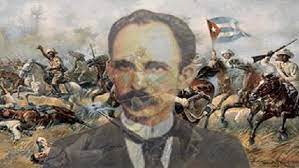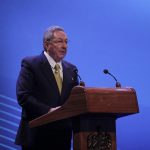At the end of 1894 there was impatience in Cuba to produce the armed uprising to put an end to Spanish colonialism. There was a feeling of nationality on the Island that made it impossible to continue with the humiliation of not having political rights and continuing to live under other laws on their own land.
The ten-year War for Independence (1868-1878) and the so-called Little War (1879-1880) deeply affected the patriotic feeling of Cubans. The defeats were nothing more than firebrands ready to revive the flame at the slightest spark, publishes the official CITMA site.
In addition to the courage shown in the jungle, women and men survived those events willing to resume the sacrificed life in the mountains.
The mistakes made in the contests were interpreted and assumed by a young defender of the same ideals with the word from the press, prison and exile: José Martí.
Martí meticulously organized the resumption of the necessary fight. He raised funds abroad and rallied the revolutionaries.
The Plan of the Fernandinas, jealously guarded by the Apostle to transfer weapons and military supplies in various vessels to the Greater Antilles, was destroyed due to a betrayal at the beginning of January 1895.
With few resources, José Martí, as the main leader of the Cuban Revolutionary Party, sent the order for the uprising for the second half of February to the patriot Juan Gualberto Gómez inside a cigar, who chose Sunday the 24th, carnival day, for it.
The communiqué reached the hands of the chiefs of the other regions of the island. As the date approached, they left their homes for the jungle so as not to be arrested.
In the west the insurrection of February 24, 1895 failed, but in the east of the country it gained strength and advanced. After three years and six months, the US Army intervened in the conflict, depriving the Cubans of victory.

Redacción Digital
Equipo de redactores del sitio web de Radio Mayabeque



